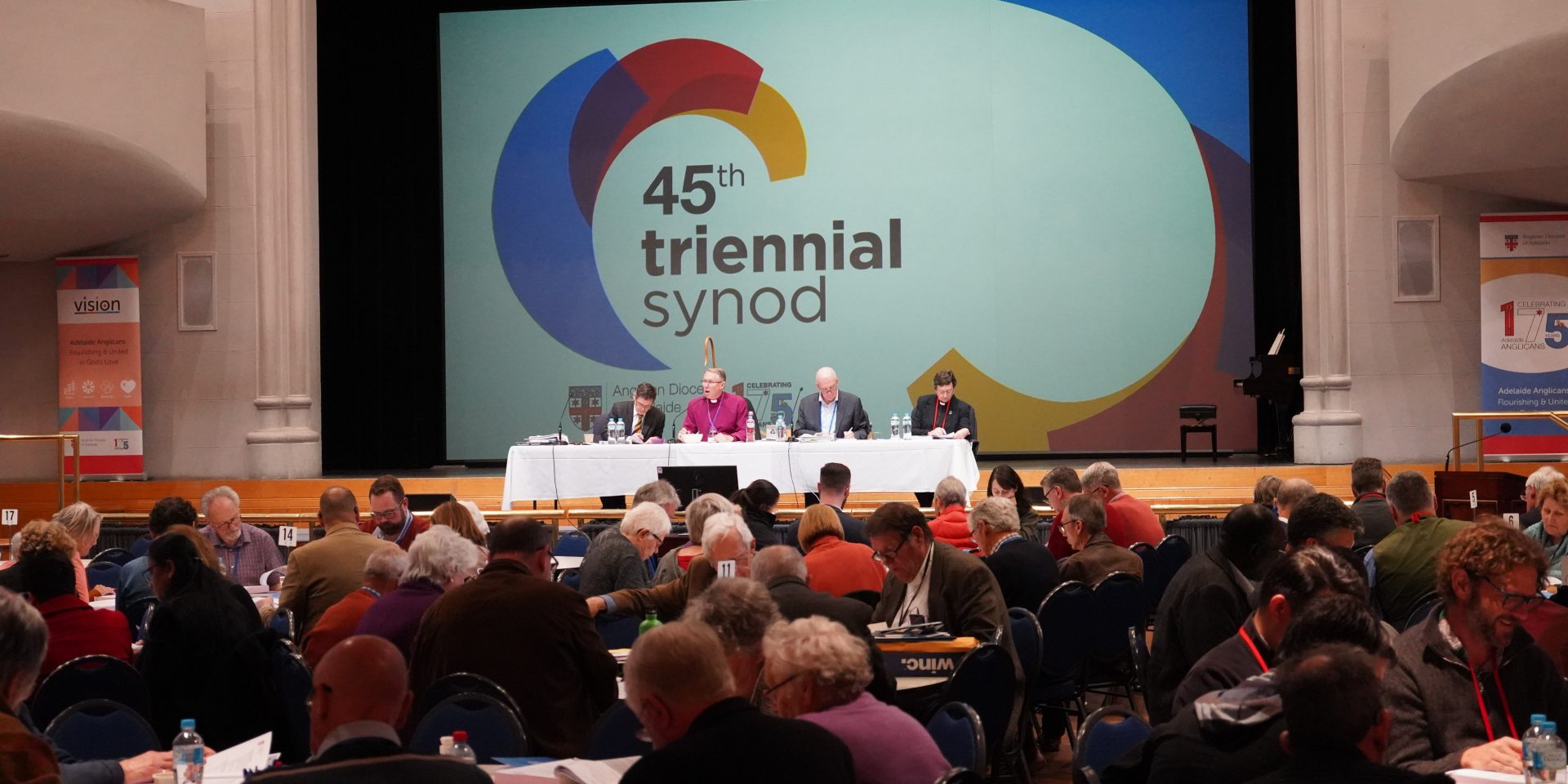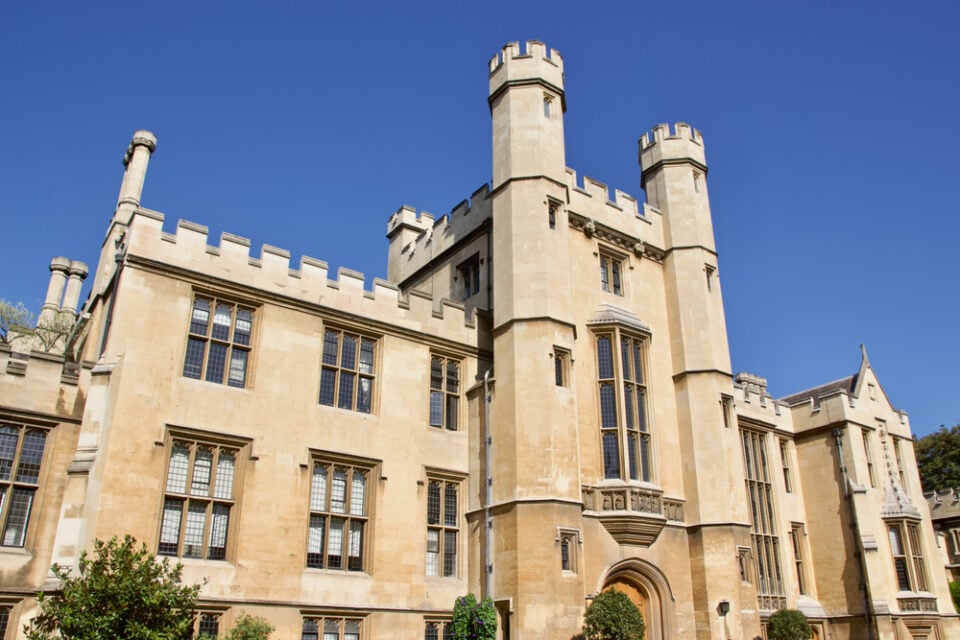Archbishop Geoff’s Address to Synod 2022
Welcome everyone to this meeting of the Synod. I particularly want to welcome new members. I hope you enjoy this weekend.
As we gather, I acknowledge that we meet on the land of the Kaurna people of the Adelaide Plains, and I acknowledge and respect their cultural heritage, beliefs, and their relationship with the land. I acknowledge the impact European settlement had and continues to have on the first peoples of this land, and we continue to seek and pray for reconciliation.
This is the first session of the forty-fifth synod of the Diocese of Adelaide. The last time we were in the first session of a synod was 2019 and a great deal has happened since then. My sense is that with the ongoing relaxation of Covid-19 related restrictions, life is continuing to move to a post covid phase. That is not to say that Covid-19 is finished. People are still being infected and that is causing disruption all over the place. We will continue to be careful and thoughtful of each other to minimise the spread of infection. Having said that, I am hoping that we will be able to get activities in parishes going again with some greater confidence.
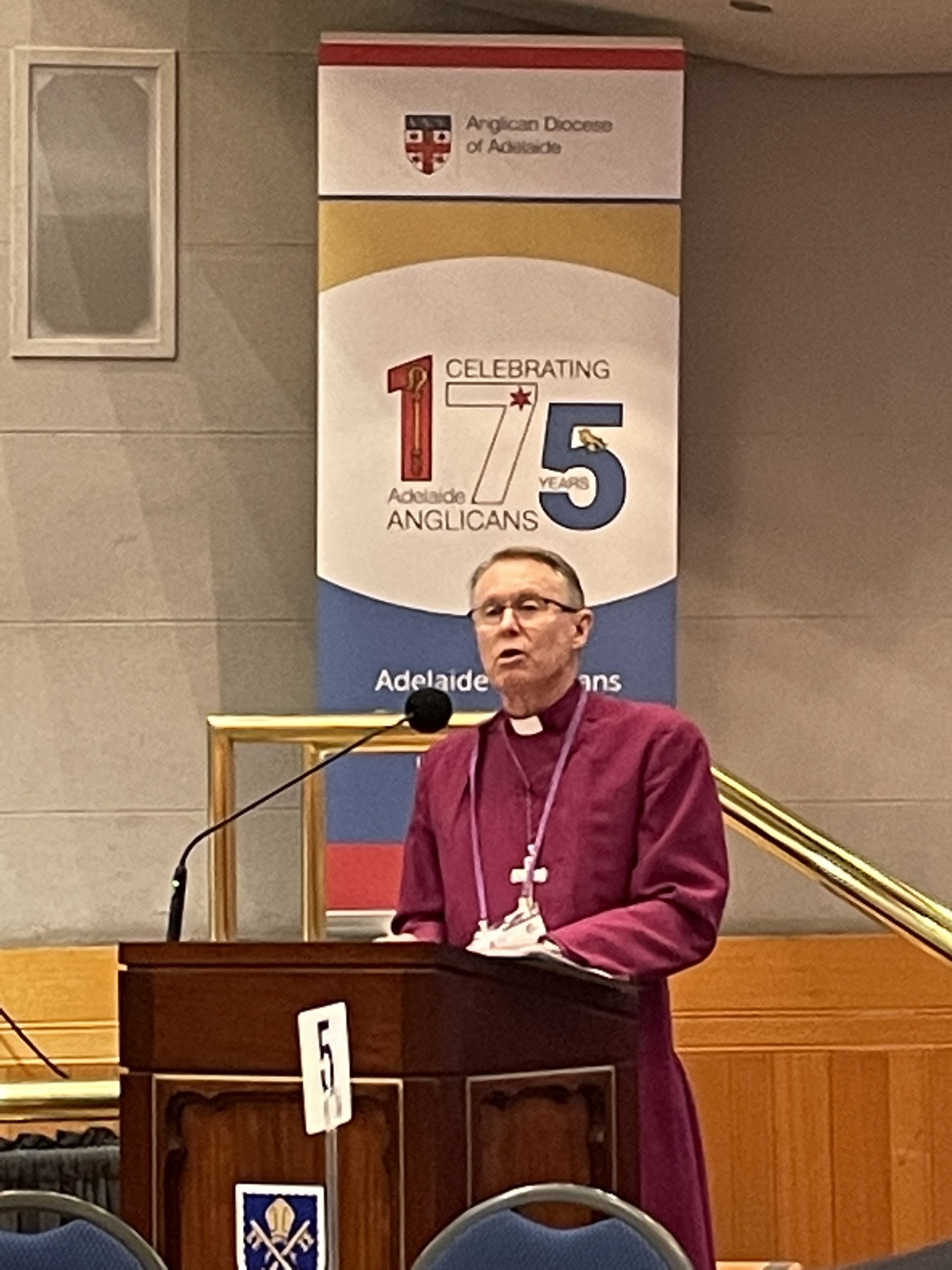
Our worship gatherings, social events, Bible studies, discipleship activities and community service are very important, and to varying degrees were put on hold during the pandemic. We need to gradually get appropriate activities going again. That’s not to say everything that was happening before the pandemic should be brought back. One gift of the Covid-19 was that many of the usual activities stopped and that gives us an opportunity to evaluate what should be restarted. We tend to be better at starting things than stopping them. My own sense is that energy and enthusiasm is returning, and I look forward to a more positive time.
I want to welcome new members to the activity we call ‘synod’. The word ‘synod’ is made up of two Greek words. ‘Syn’ meaning together, and ‘hodos’ meaning way or road. So, the word synod means ‘together on the way’ or ‘together on the road’. This is important. We as the Anglican diocese of Adelaide are on a journey. We are attempting to follow Jesus in his way, pointing to the coming kingdom of God, and we are attempting to do this together. The meeting of the synod is a chance for us to try to discern together where Jesus is leading us as a diocese.
Both the ‘discernment’ and the ‘together’ are important. Over this weekend we will reflect on a refreshed diocesan vision, debate motions that may become resolutions, consider legislation, and elect people to leadership positions, all of which will to some degree shape the way we go forward as we seek to follow Jesus. And we will do this together. Doing this discerning together means that at times we will agree with each other and at times we will not. That’s all part of the discernment process.
What is important is that we are seeking to discern the will of the Lord for the church – for the direction of his church – and we are doing that together.
We are all members of the body of Christ, all adopted sons and daughters of God and all called to love each other as Jesus loves us. Our disagreeing therefore should be different to the disagreeing of the world. Our agreeing and the way we disagree can be an important witness to our obedience to part of the great commandment – to love each other as Christ loves us. Our community badly needs some positive examples of positive disagreement and living with difference, and we have the opportunity to offer those.
Being part of a synod such as ours is a privilege as well as a responsibility. Significant numbers of Christian churches don’t have a forum like this, and it didn’t exist in the Anglican church until our first bishop August Short introduced it in 1855.
The synod does follow processes which when we are new to them can be a bit puzzling. I will try to explain what we are doing as we go along, and if I am going too quickly, please let me know. An important thing to remember is that even though I am presiding I don’t have the final say. The synod is in charge of its business and if the synod wants to disagree with me then that’s the way we go. The rules for the conduct of the synod meeting are called the standing orders. We have a standing orders ordinance and while the standing orders may not make thrilling reading, they are the agreed rules by which we operate when we gather as the synod, and familiarity with them helps participation in the process as we meet.
175th Anniversary of the Diocese
This year we celebrate the 175th anniversary of the establishment of the Diocese of Adelaide. Letters patent creating the Diocese were issued in June 1847 and the first bishop Augustus Short was consecrated in the same month. A really good little booklet has been produced to mark the anniversary. Adelaide Diocese is not alone in marking this significant milestone this year. The Dioceses of Sydney, Melbourne, Adelaide and Newcastle were all formed from the Diocese of Australia in 1847.
The Archbishop of Canterbury Justin Welby and Mrs Caroline Welby were here last weekend to help us celebrate our 175th anniversary and it was a great celebration. There were a number of elements to the program but the dinner last Saturday night was an absolute stand-out. It was a sparkling event and I have only heard positive feedback. I want to thank members of the staff of the bishops’ and synod office for all the work that went into those few days.
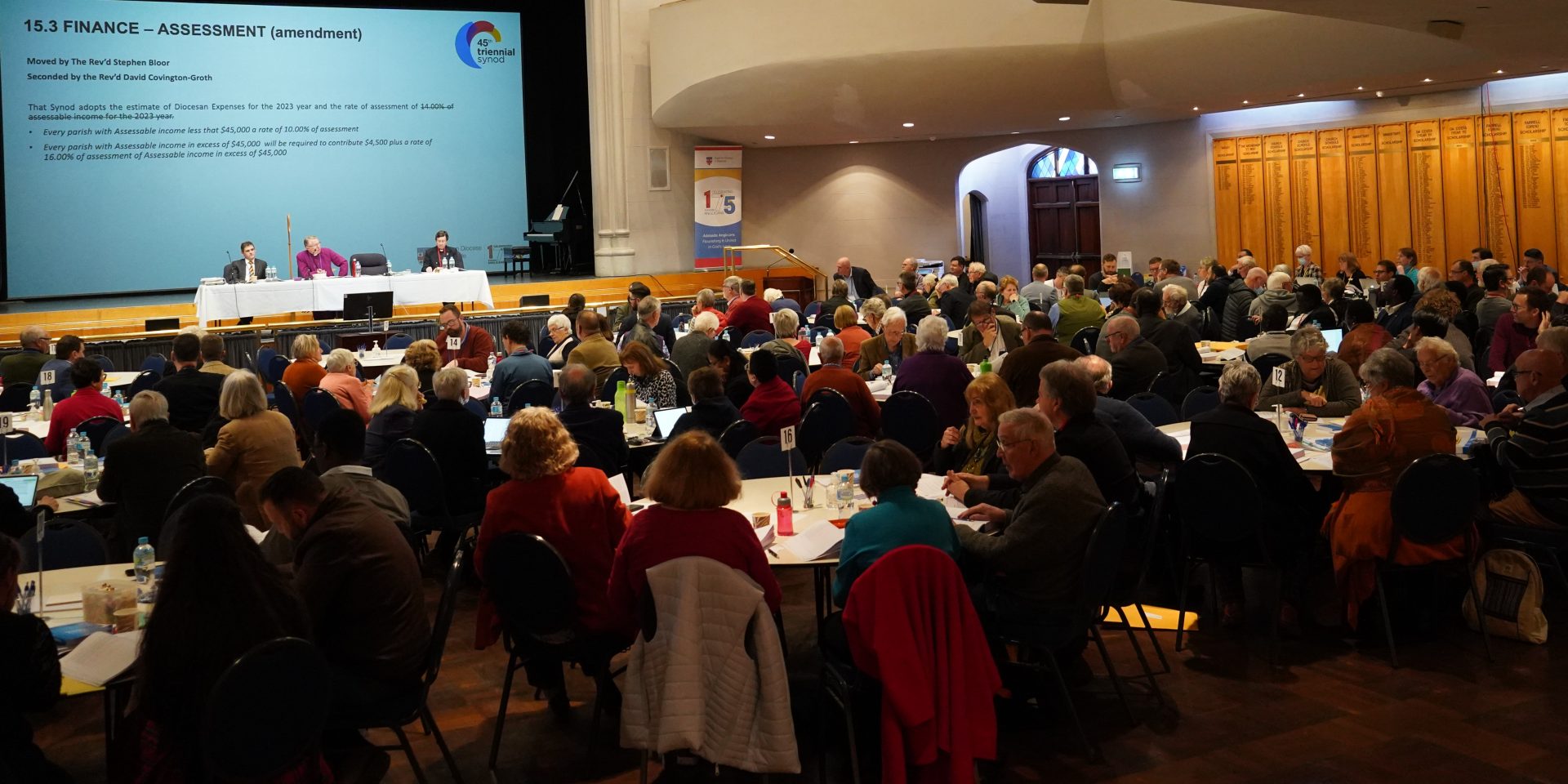
I think I am among many, many people who found the Welby’s visit very encouraging and I praise God for the visit, and especially Archbishop Justin’s ministry.
Lambeth Conference
The postponed gathering of Anglican Bishops and their spouses finally took place in late July/early August this year at the University of Kent in Canterbury. The theme of the conference was ‘God’s church for God’s world’ and the conference considered how we might more effectively minister as God’s church in God’s world.
Throughout the conference we considered the first letter of Peter in some depth with the Archbishop of Canterbury giving five expositions (one for each chapter of the letter) and the bishops and spouses gathering in Bible study groups to continue the discussion of the text.
Along with the focus on 1 Peter, the conference considered a number of topics. Those, together with the Bible study and three key-note addresses from the Archbishop of Canterbury, helped focus us outwards – toward the world that God loves and Jesus died to save.
The topics we considered were Mission and Evangelism, Discipleship, Anglican Identity, Reconciliation, Human Dignity, Environment and Sustainable Development, Science and Faith, Safe Church, Christian Unity and Interfaith.
As at the 2008 conference there were no ‘resolutions’ at this year’s Lambeth. Instead, there were ‘calls’ – affirmations or declarations and calls to the church for action on the 10 topics we considered. There is still work being done on the final text of the calls following feedback at the conference and then we will, over the next few years, consider how we will receive and act on them.
One of the most significant calls concerned mission and evangelism. There are nine specific requests in this call, and I will read them to you.
1. Each diocese and every church to seek fervently to be renewed by the wonder and power of the good news of Christ.
2. Each diocese and every church to commit to prayer, listening and discernment, in the power of the Holy Spirit, to discern how to bear faithful witness to Christ and authentically proclaim the gospel. This to include praying for the Holy Spirit to work in hearts and minds so that the message of the gospel would be received and bear fruit.
3. In obedience to Christ’s own charge, every church to commit itself to actions which purposefully present the good news of Christ so that all might hear the call of Christ and follow Him.
4. Every Christian joyfully to understand that they are a witness to Jesus Christ praying that through this at least one other person each year might come to faith and grow as a disciple.
5. That we pray for each other in this ministry and commit to listen to, learn from and find encouragement together in this Call.
6. For Bishops to be equipped and enabled to lead in this evangelism. Following the apostolic example, we are to lead God’s church in God’s world in bold proclamation.
7. For each diocese to cherish, train and send evangelists.
8. For each diocese to make a fresh and creative commitment revitalize churches and to plant new congregations in contextually appropriate ways, to reach those who have not yet heard the Gospel.
9. For the churches that are persecuted to be supported in their witness, that they may be protected and stand firm in their faith.
Archbishop Stephen Cottrell of York was the lead speaker in the plenary session on mission and evangelism and at the end of his talk he invited us to stand and recommit ourselves to make evangelism a priority in our diocese. I think all the bishops stood, I certainly did.
As I said, we will need to reflect on the calls and decide how we will respond to them. As there are 10 calls, I anticipate the process will take some time.
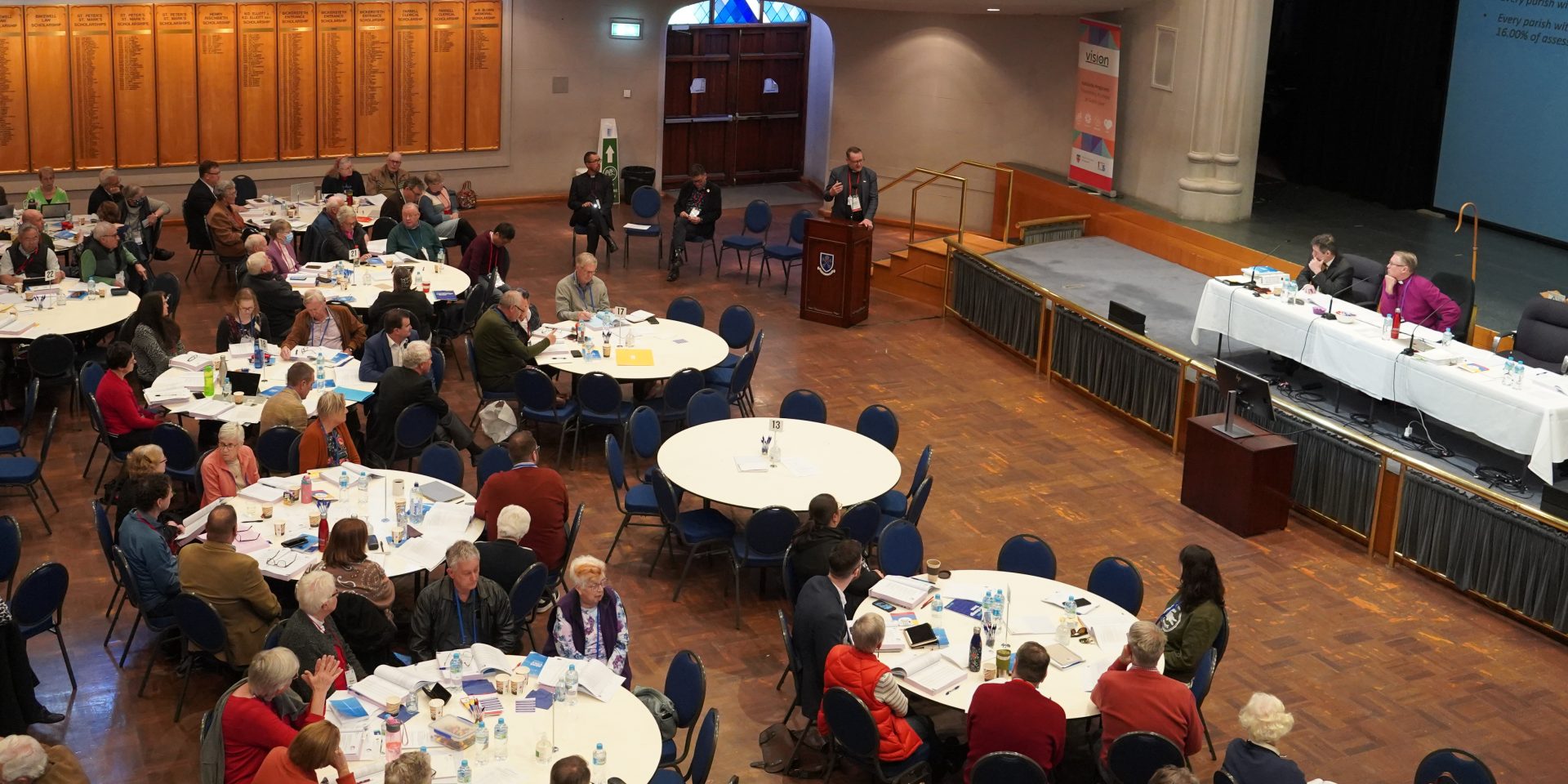
The focus on evangelism and discipleship is reflected very well in our revised vision statement that we will spend time talking about this afternoon. In that document Adelaide Anglicans are: followers of Christ, growing in discipleship, sharing the good news of Jesus Christ and making disciples of others.
We do need to make evangelism a priority in the life of the Diocese. There are a number of things we can do but the first is prayer. The second section of the call, calls us to prayer, listening and discernment in the power of the Holy Spirit, to discern how to bear faithful witness to Christ and authentically proclaim the gospel. And this is because God is the primary evangelist, not us. We need to be tuned into where God is leading through his Holy Spirit.
I think we need a real focus on prayer in the diocese so I propose to call the diocese to prayer and fasting in Lent next year that we might be attuned to the Holy Spirit and be led in our work of evangelism. I will suggest that we fast for evangelism on the Wednesdays of Lent and have a special prayer focus on those Wednesdays. More information will be available as the plan is developed.
Sharing the good news that is Jesus is absolutely critical for us. Sharing the good news that is Jesus in a way that connects with the current context is to do what Jesus did in his ministry. The driver, the ‘why’ is God’s love for the world which we have experienced. John 3.16 says “God so loved the world that he gave his only Son, so that everyone who believes in him may not perish but may have eternal life”.
The Greek word in this verse which is translated ‘world’ is ‘cosmos’ which reminds us that God’s love is for the whole creation and God’s intention is life and life for the whole creation including the human part. The motivation of God is love. Our motivation to share in telling and communicating the good news that is Jesus is that same love.
As part of his talk, Archbishop Stephen quoted from the First letter of Peter chapter 3 verse 14: “Do not fear what they fear and do not be intimidated, but in your hearts, sanctify Christ as Lord and always be ready to give a reason for the hope that is within you.” He went on to say:
“McDonalds makes hamburgers.
Cadbury makes chocolate
Starbucks makes coffee
The Simon Bolivar Youth Orchestra of Venezuela makes music
Heineken makes beer
Toyota makes cars
Rolex makes watches
Safaricom across most of Africa makes connections
And sisters and brothers, the Church of Jesus Christ makes disciples.
That is our core business. That is what we are about.
Not just converts. Jesus doesn’t say ‘go into the world and make converts. He doesn’t say go into the world and make churchgoers.
He says ‘make disciples’. Followers of Jesus.
And what do disciples make?
Well…
Disciples make peace
Disciples make justice
Disciples make the kingdoms of this world the kingdoms of our God and of His Christ (see Revelation 11. 15)
Disciples make disciples
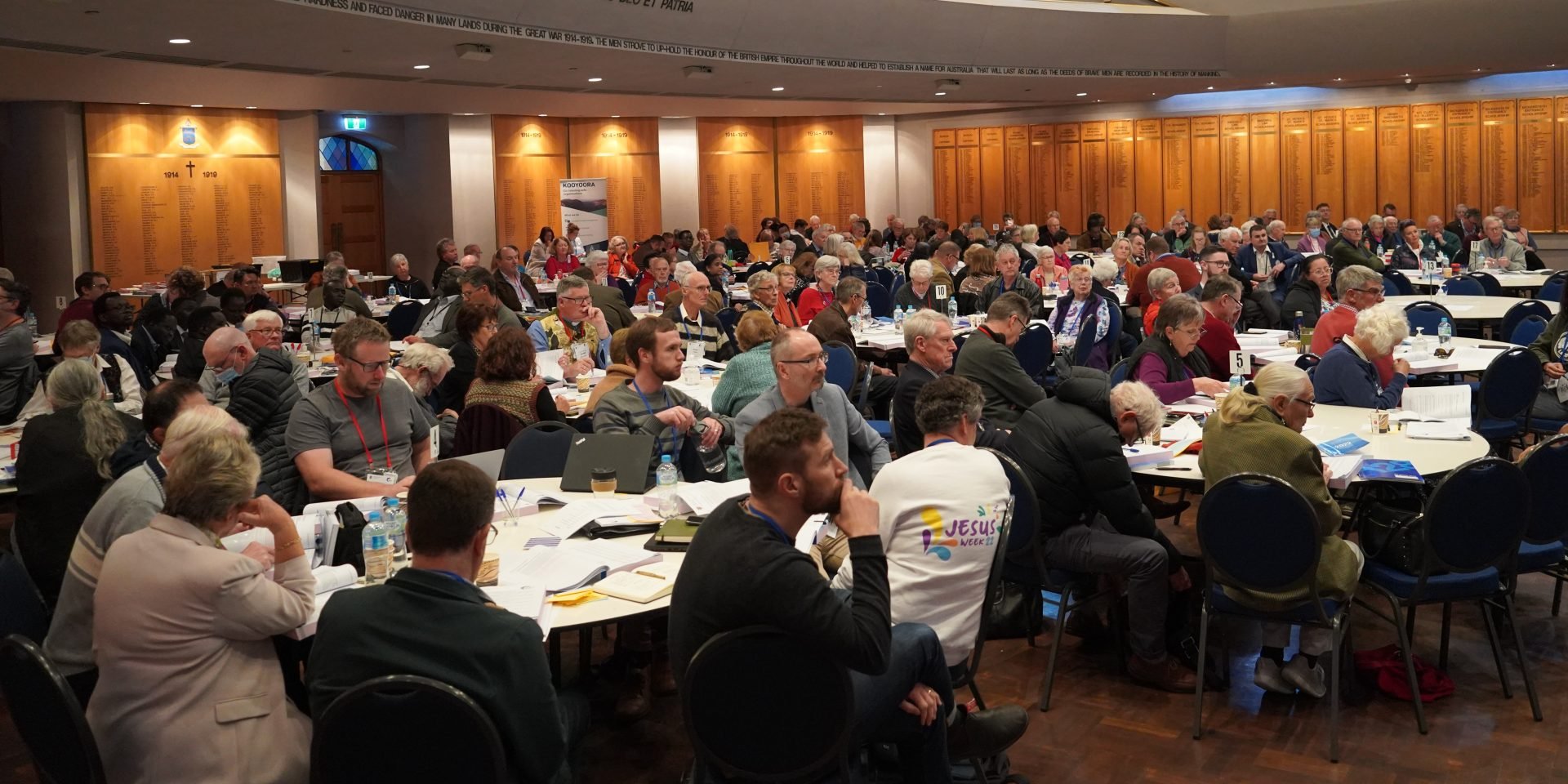
We are not trying to build the earthly empire of an institution called the church. What we are about is this: Thy kingdom come. Thy will be done. That is our prayer, and our motivation.”
There is no doubt that the work of evangelism and disciple-making needs to be a major focus of our attention. We need to help people to know Jesus and therefore to know God and to share in God’s mission of the kingdom of God. Every committed member of the church should be able to ‘give a reason for the hope that is within you’. Parishes need to offer processes and programs to introduce people to Jesus and help the people of the parish be confident to talk about their own faith.
Two of the gospels (Luke and John) tell us that they were written to help the truth about Jesus be known (Luke) and so that readers might accept that Jesus is the Messiah and so have life in his name (John).
If parishes can’t find a program to use which introduces people to Jesus, then using those gospels, or Mark’s gospel because it is brief and direct, is a very good way to go. Programs and tools for helping people discover the Christian faith already exist. I am encouraged that a number of parishes are planning to run Alpha courses in the next few months. If your last experience of Alpha was twenty years ago, can I encourage you to look again at the new Alpha. It is very different to the version most of us are familiar with.
The Church of England website has an online training course called Leading in Evangelism which is a course designed to help leaders develop and a maintain a faith sharing culture. Toolboxes of available resources are being developed as part of the planning to make real our goal to be growing in discipleship, sharing the good news of Jesus Christ and making disciples.
While Archbishop Cottrell reminded us of Peter’s words about sharing the hope that is with us, evangelism is not solely about words. As disciples of Jesus, we need to follow Jesus’ example. Bishop Tom Wright in Surprised by Hope (2007, 191) says:
‘Mostly Jesus got a hearing from his contemporaries because of what he was doing. They saw him saving people from sickness and death, and they heard him talking about a salvation, the message for which they had longed, that would go beyond the immediate into the ultimate future. But the two were not unrelated, the present one a mere visual aid for the future one or a trick to gain people’s attention. The whole point of what Jesus was up to was that he was doing, close up, in the present, what he was promising long term, in the future. And what he was promising for that future, and doing in that present, was not saving souls for a disembodied eternity but rescuing people from the corruption and decay of the way the world presently is so they could enjoy, already in the present, that renewal of creation which is Gods ultimate purpose-and so they could become colleagues and partners in that larger project.’
What we do is a very important part of evangelism and the wider sharing of God’s mission seen in Jesus. Jesus did not rank speaking of the kingdom of God and doing actions of the kingdom of God one above the other. Both are necessary and importantly both are reflected in our refreshed vision.
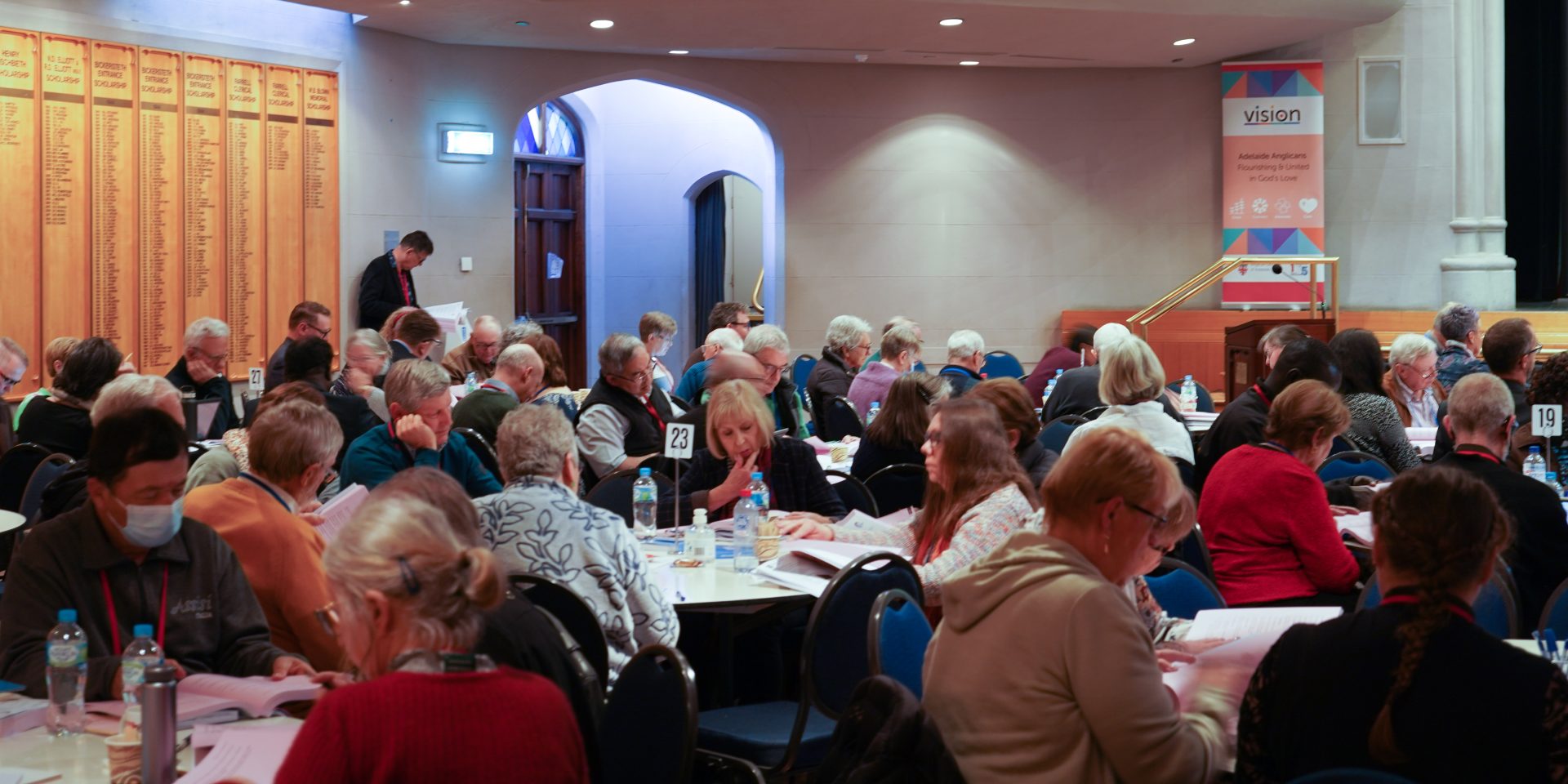
Refreshed Vision
I mentioned a moment ago the refreshed Diocesan Vision, which has been adopted by Diocesan Council. The vision statement is: Flourishing and United in God’s love. There are four focus areas:
· Growing in discipleship, sharing the good news of Jesus Christ and making disciples of others.
· Connecting in and with communities.
· Advocating and working together for social justice and;
· Caring for creation and each other.
I think this is a very good set of priorities for us as we move forward. I am very grateful to Mr Joe Thorp, the Secretary of Synod, and the synod office staff for leading the consultation process which saw more than 200 people share their views about our priorities. While there was consultation for Vision 2022, the new vision has the feel of much greater ownership by the Diocese which is very positive.
Voice
I said in my acknowledgement at the start of this address that we are committed to praying and working together with First Nations people for reconciliation and I meant that. In Matthew 5.24 Jesus says: ‘so when you are offering your gift at the altar, if you remember that your brother or sister has something against you, leave your gift there before the altar and go: first be reconciled to your brother or sister and then come and offer your gift’.
The sad truth is that First Nations people of Australia do have a grievance against the nation of Australia. They do not believe things are right yet and we need to take notice of that.
On May 27, 2017 the Uluru Statement from the Heart was issued as an invitation from First Nations peoples to all Australians. The statement calls for legal and structural reforms to reshape the relationship between First Nations peoples and the rest of the Australian population.
The Statement calls for two substantive changes: the Voice and Makarrata.
1. A Voice to Parliament enshrined in the Constitution.
2. A Makarrata commission to supervise:
· Agreement-making.
· Truth-telling about our history.
The Statement calls for real and lasting structural change to our current systems of authority and decision making, rather than superficial changes.
A First Nations Voice to Parliament is the first reform called for in the Uluru Statement. This is a constitutionally enshrined body of First Nations people with a direct line to federal parliament, able to influence laws and policies that affect First Nations communities first-hand – at the point they originate.
The federal government has committed to a referendum on the question of a Voice in its first term. At this stage details about the Voice and exactly how it will work are not at all clear, but I think we can still hear and support the call of the Uluru Statement for constitutional recognition of First Nations people. I am pleased that we will have the opportunity to consider a motion along those lines in the course of the business of this synod.
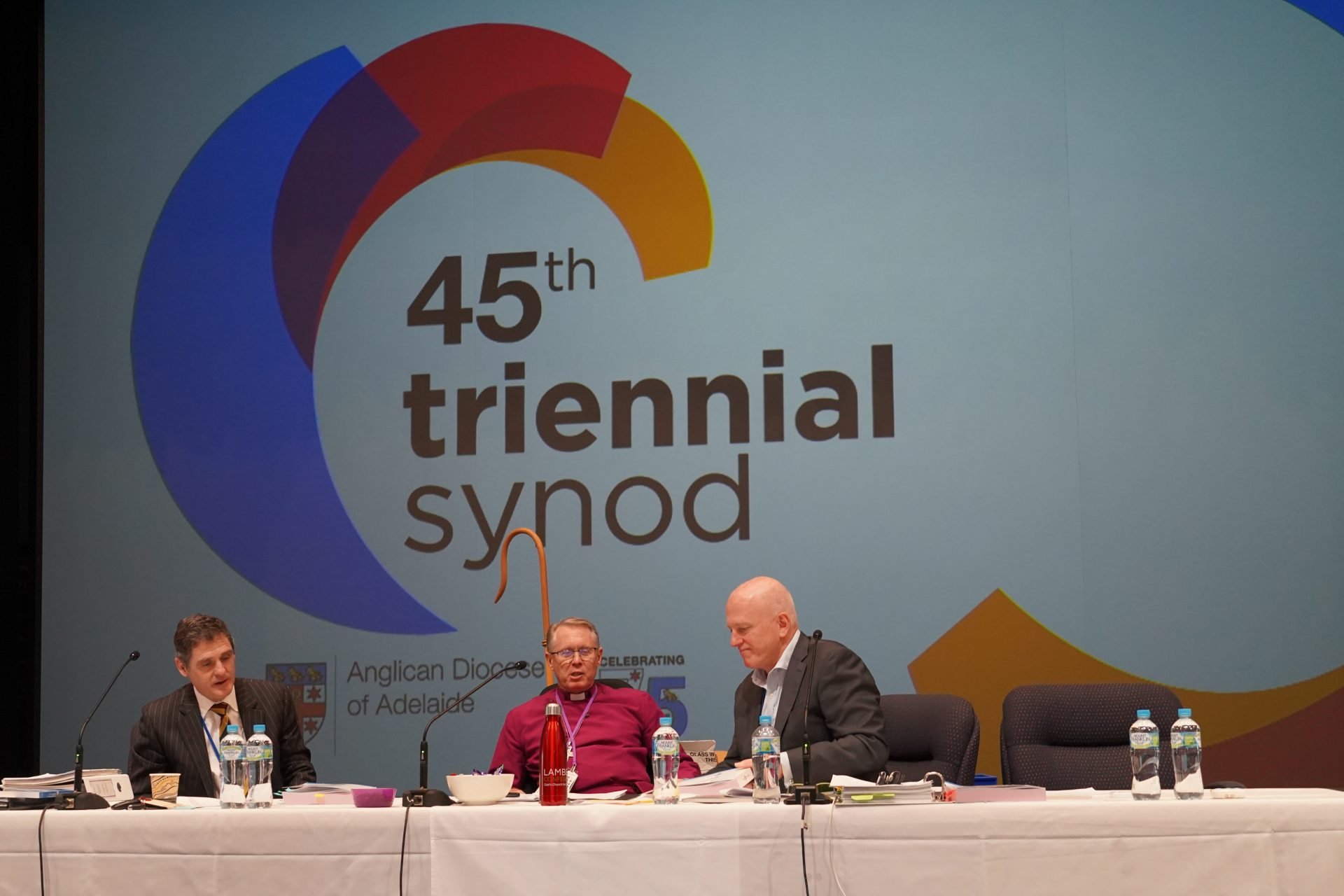
2021 Census
Initial results of the 2021 census have been released and the results concerning religion contain no great surprises since they continue a long trend. They nevertheless paint a stark picture with respect to religious affiliation and the Australian community. In South Australia 40% of those who completed the census identified as Christians. This percentage is lower than the national figure of 44%. In South Australia nearly 46% of people ticked the ‘no religion’ box compared to almost 40% nationally. It is somewhat ironic that Adelaide is known as the ‘city of churches’ given the census results. In South Australia 7.2% of people identified themselves as Anglican compared to 9.8% nationally.
I refer to the census results because they give us a picture of the context in which we are ministering and sharing God’s mission. Christians are now a minority of the population. We are still a significant minority and certainly the largest by far of the religious groups in the country, with Muslims accounting for 2.3%, Buddhists 1.9% and Hindus 2.1%, but although the largest religious group, we are still a minority across the nation.
What that means is that the automatic acceptance of the presence of the church is quickly diminishing. Campaigns led by people such as Richard Dawkins to convince the community that religion is a bad influence are being successful. Religious groups themselves have contributed to this view with historic child sexual abuse in Christian churches, ongoing internal squabbling, and extremist violence in other religious groups contributing to the negative view.
Not long ago the church was seen as a positive influence in the community. Being an active member of a church was seen as a positive thing to have on your CV. Increasingly that is not the case. There is a widening gap between the values of the church and the values of the broader community. If our community had worked out a way to live with that difference in values, Christians could be confident that their presence and contribution will be valued as we go forward.
But there are signs that is not the case. The Archbishop of Canterbury recently observed that: ‘we have not found a way of disagreeing without exclusion, without cancelling people’.
If this trend develops it will be increasingly difficult for Christians to be open about their faith because their faith, or their membership of a church, will count against them especially in the sphere of employment or community service. This is a very significant change and is the result of the secularising of our society in the Western world and our society not yet coming to grips with what living with diversity actually involves.
There are a number of ways that we can respond to this situation. We can play the victim and cry ‘unfair’. I doubt this will be effective in bringing about change and is certainly not a positive approach. There has been a lot of talk about legislation to protect freedom of religion over the past few years, but I am not at all convinced that law can address what is a cultural issue, especially if protecting one person’s freedom means discriminating against another. Our community needs to work out how freedom of religion can be assured in a secularising community.
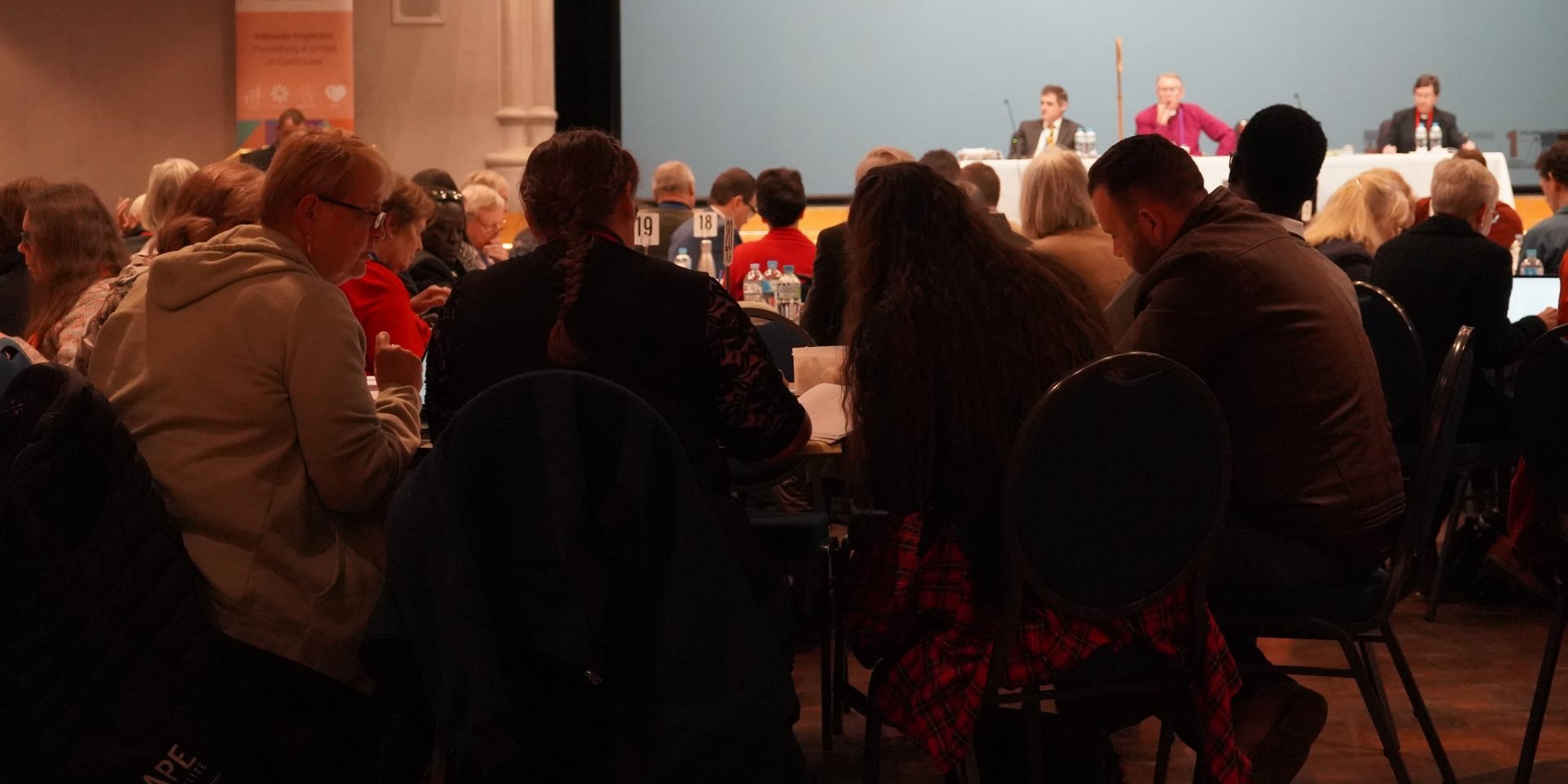
The second thing we can do is demonstrate that Christianity is a positive. There is a huge amount of good done by Christians and the organisation called the church but unfortunately it is true that bad things have been done by religious people.
For instance the church has in the past not responded well to allegations of child abuse.
The church has been no better than the general society when it comes to Domestic and Family Violence.
Churches are often marked by conflict and internal disputes which can be really nasty.
Christianity is a life following Jesus, whose actions reflected his teaching. He brought life and light to those who were in need. He demonstrated self-giving love which really benefitted people in the present not just the future. I know none of us is perfect but as we seek to follow Jesus the idea is that we become like him. As we become like Jesus we will, as he did, bring light and life, healing and wholeness and point to a future of hope.
I do think it is important for us to remind the community that many of the principles and institutions of our society exist because of the Christianity which has been the foundation of our society for so long.
Things like human rights, equality, freedom, presumption of innocence, democracy, equality of the sexes, freedom from slavery, universal education, the value of the individual, personal responsibility and justice did not come from thin air and will certainly come under threat without the philosophical underpinning and genuine motivation of Christianity.
A further response we can make is to demonstrate that we Christians can disagree well and live with difference. This could be an example or a model for the wider community. I thought it was ironic last week when Andrew Thorburn was forced to choose between his new job as CEO of Essendon football club and his chairing role of the City on a Hill church, a great deal of concern was expressed by Christians that Mr Thorburn’s association with the church meant he couldn’t be the Essendon CEO. And yet that kind of cancel culture is alive and well in the church. Archbishop Welby’s comments could easily apply to the church. ‘We have not found a way of disagreeing without exclusion, without cancelling people.’
We make judgements about people because of their beliefs. If their beliefs don’t line up with what we believe they need to be, they are not accepted. Disagreeing well and living with difference is a current challenge for our society despite its verbal commitment to diversity but we need to turn the light on ourselves and make sure we are not falling into the same trap.
The New Testament is replete with encouragement for Christians to love one another. We should be really good at living with difference, treating each other with grace and mercy and generosity, but that’s not always the way we act at all. We don’t have time for internal fighting. The task is too urgent. We are God’s church for God’s world and that’s where our focus needs to be.
Domestic and Family Violence
At last year’s session of the synod the Ten Commitments for Preventing and Responding to Domestic and Family Violence were accepted. The commitments were produced following an extensive research project commissioned by the General Synod of the Anglican Church of Australia. As part of the work of integrating the commitments into the culture of the Diocese, a training program known as MATE – Motivating Action Through Empowerment – has been introduced.
MATE is about training people to recognise behaviour which could lead to or reflect violence and to do something positive to prevent or respond to the violence. In September this year a train-the-trainer three-day program was held at Christ Church, North Adelaide. Participants are now equipped to deliver MATE Bystander workshops in their ministry contexts.
Those workshops will begin to be scheduled next year and I encourage leaders, lay and ordained, to attend a workshop and help raise awareness of the terrible issue of domestic and family violence in the community and the church, to work toward prevention, and to respond when people are experiencing violence.
The Ten Commitments posters and postcards are available over the Synod weekend, and I encourage you to take them and display them in churches and Anglican communities.
National Church Life Survey
Early this year most parishes in the diocese participated in the National Church Life Survey. In 2020 we did an NCLS just for our diocese, and this year we were part of the national five-yearly survey. Despite difficulties caused by Covid-19, about the same number of people participated this year as did in the last survey in 2020. Initial results of this year’s survey have been returned to the participating parishes and I continue to encourage parish councils to look carefully at the survey results since the opinions expressed in the results are from the people of your parish. The results can provide important insights into the Christian life of church members and pointers for future ministry priorities.
As well as results for individual church communities we have snap-shot results for the combined results of the diocese. We also have the same information from the 2020 census. Apart from looking to see where our priorities might be I was hoping that as we participate in a series of surveys over time, we will be able to see whether we are making progress in the important areas the survey examines. The results from the 2022 survey are not very different from 2020, which is not surprising given that churches change slowly and the very significant disruption that Covid-19 caused to the ministry of parishes in the diocese.
One difference that is significant, and was highlighted to us by the NCLS researchers, is around vision. The 2022 survey showed an increase in the percentage of people who are aware and strongly committed to the vision of their church. This is very encouraging. We have been talking about mission action planning now for several years and many parishes have engaged in a process of mission action planning. Some are at the stage of reviewing and refreshing those plans having run with their plans for two or three years.
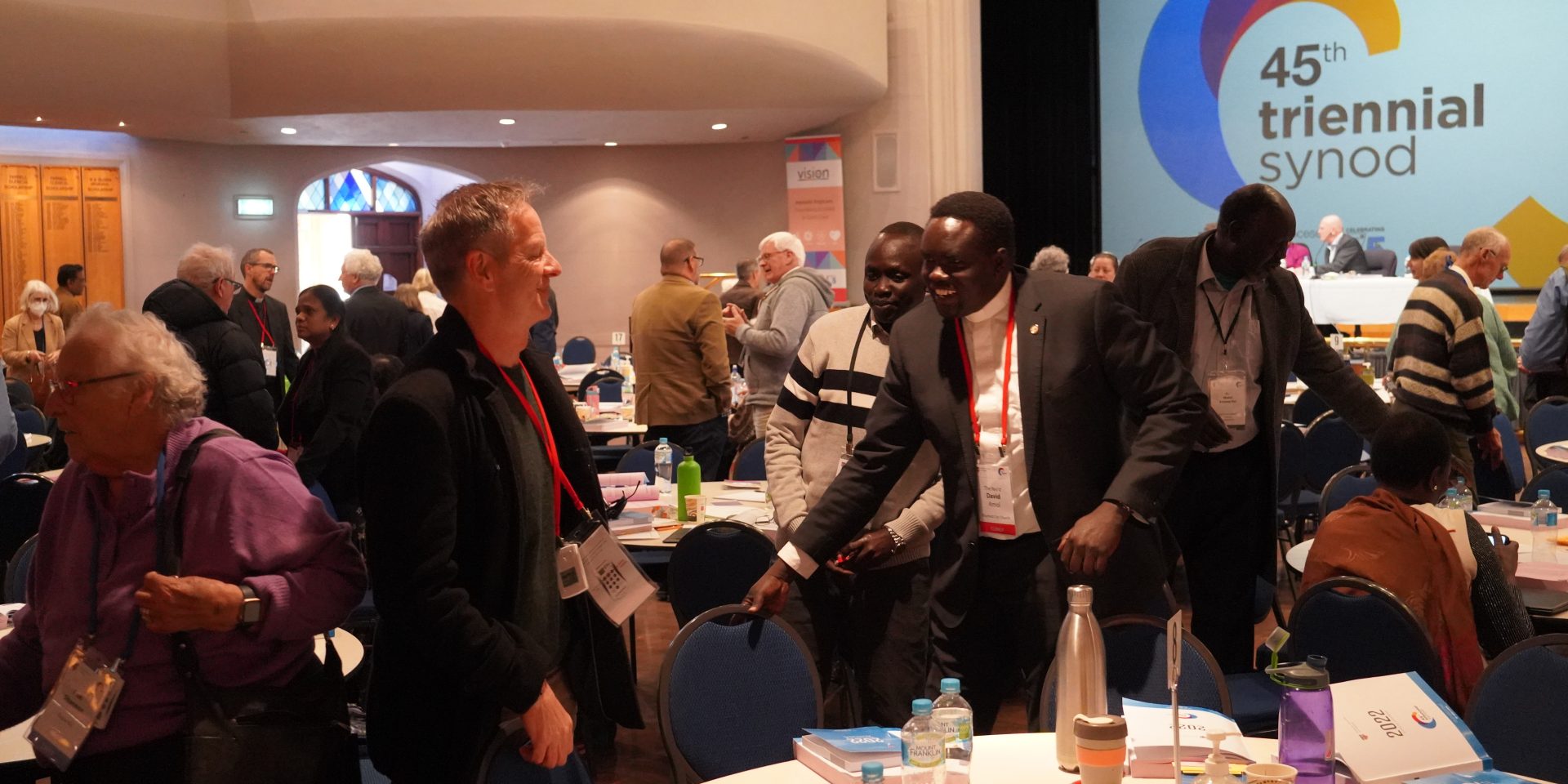
The survey results indicate that overall, there is an increase in the percentage of people who are aware and strongly committed to the vision of their church. This is significant because NCLS research has shown that there is a positive correlation between higher levels of knowledge of and commitment to the vision of the church and church health. Higher knowledge and commitment help to improve the health of a church. The healthier a church is, the more likely it is to grow.
So this means, that we need to keep going with our mission action planning processes. As a diocese we are doing this. The refreshed vision and the action plans that will flow from it is an example of that. Parishes that have mission actions plans need to use them and not leave them on a shelf, and at an appropriate time refresh those plans.
I strongly encourage parishes that don’t have a current mission action plan to develop one and use a process which involves as many people in the church as possible. That will help both the knowledge of and commitment to the resulting priorities and contribute to a plan that people will own and implement. If parish leaders don’t know how to do a mission action plan, please let me know because there are very good tools available to help.
Cooperation
One of the things I have been encouraging parishes to do over the past couple of years is look for ways to work together and share resources. I have said before that the days of one priest stand-alone congregations being able to do all that is required for effective ministry and mission are long gone. We need to develop teams. We need to work together, and I am really pleased to say that this seems to be happening more and more across the diocese with pairs, or groups of parishes talking together and looking for ways to share. AnglicareSA is a significant partner that needs to be part of this engagement of cooperation. The Connect and Care aspects of our refreshed Vision identify the beginnings of further steps that can be taken.
Northern Strategy
During the past year several meetings have been held with church, school and Anglicare leaders of the Northern area of the Diocese with a view to discerning a strategy for that part of the diocese. These have been fruitful discussions and I look forward to the process of finalising a strategy over next year so we can have extra focus on an important part of our Diocese. I said at the meetings that this is not going to be a case of the synod office or the bishops office delivering a strategy to the north for the north, but a process of discerning together how God might be leading us in the northern part of the Diocese.
Conclusion
Our community, including churches, has been through a pretty trying time since February 2020. Many of our activities had to stop and people became isolated, and there was a lot of anxiety and tension which is very tiring. In Australia, of course, we were much better off than other parts of the world but the none the less the past few years have been tiring. My sense, though, is that we are coming through, shaking off the Covid weight and looking forward again.
I sense this in the diocese with the enthusiastic participation in the vision consultation, the recent lay leader’s meetings and the very well supported 175th anniversary dinner last Saturday night. People want to get on with the task of sharing in God’s mission, of being God’s church for God’s world. Growing in discipleship, sharing the good news of Jesus Christ and making disciples of others. Connecting in and with communities. Advocating and working together for social justice. Caring for creation and each other. With the guidance of and in the power of the Holy Spirit.
Covid-19 has shown us clearly that guessing what will happen in the future is a tricky exercise, but whatever happens we know who we go into the future with – the God and Father of our Lord Jesus Christ and in him the future is secure.
May the Lord bless us and keep us as we seek to serve God and God’s mission.
